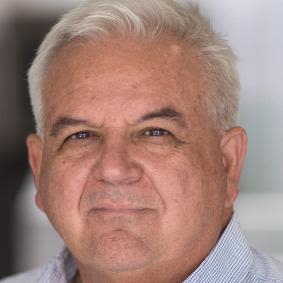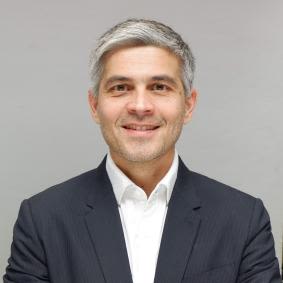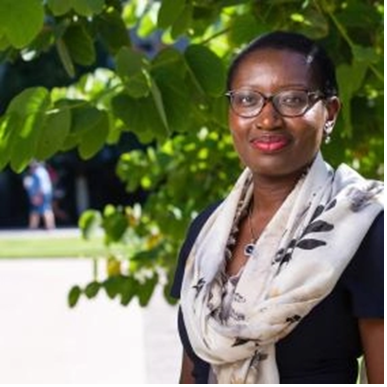Beyond Exploration
Advancing the new space economy

Introduction
This document brings together some key insights into the opportunities and challenges of the emerging space economy that have surfaced during the last four years of the Smart Space series of events hosted by Saïd Business School.
Oxford considers space from a variety of perspectives, encompassing research, teaching, and engagement with practitioners in the public and private sectors. With our characteristically multidisciplinary approach, and intersecting with the broader Space@Oxford initiative, we draw on expertise from fields as diverse as government, engineering, the social sciences, business, finance, education, defence, sustainability and literature. The ideas we discuss are relevant to policymakers, researchers, investors, and entrepreneurs – and interesting to everyone.
We are grateful to everyone who has contributed to our work so far, and look forward to many more rich conversations and discussions in the future.
Marc Ventresca
Associate Professor of Strategic Management
Saïd Business School, University of Oxford
Michele Scataglini
Associate Fellow of Strategy and Innovation
Saïd Business School, University of Oxford
Governance

Government-funded, exploration-focused, and closely associated with the defence sector: that is what Space used to be. Now it is altogether more complex and contested, with new players, commercial interests, and emerging technologies all vying to compete in what is becoming a new economic ecosystem.
But new systems require new rules and relationships, rights and responsibilities. Space is a commons area – natural resources that are available to everyone – and governance needs to be established to ensure that it is sustainable. The sector is evolving quickly, and with it the requirement to agree meaningful ‘rules of the game’ so that it is possible to preserve and steward the environment for the long-term.
'One of the big issues that we're facing right now is defining what space is. Is it a domain? Is it an environment? Is it a place in which Earth principles and Earth laws apply or is it a place that is completely separate?
Because when you take away the idea of space as just a scientific laboratory and it becomes a multi-stakeholder environment with different kinds of actors, you have to figure out how you are going to govern those people. Are you going to take Earth rules up there, does it work in the same context?
Since 2000, we've had an increased number of actors. But states haven’t had the appetite for treaty regimes. So what you now see are non-binding principles and guidelines; you see coalitions making their own self-governance regimes.
We started off with hard international law instruments; then we moved into soft instruments; and now it's more about the national approach. Countries are establishing rules and laws that say, ‘this is how we interpret those international rules and this is what's going to apply to our citizens’.
Season 1, episode 6 (Space venturing)
Season 1, episode 6 (Space venturing)
'After all, after Columbus's first voyage it was 50 years for a major follow-up, 103 years until anything commercial started going – and the regular voyages that went between Europe and the United States were commercial after all. This is what the world looked like to Columbus, and the initial voyages, just like in space, were government funded and they used advanced technology of the time to conduct their voyages. They weren't commercial or, when successfully commercial, it was about a hundred years later that commercialisation and settlement started happening, and the technology advanced to make that happen.'
A number of speakers looked to the past and the development of other sectors as models for how the shift from traditional government-run space projects to private enterprises and commercial growth may play out. Collaboration will be key, as public organisations and private businesses join forces to enhance efficiency, foster innovation, and solve problems.
'Public-private partnership is within the tradition of railroads, airlines, even the internet, where the Government takes the lead and then eventually begins to turn over much of the activity to the private sector.
That is what is happening today with NASA, SpaceX, Blue Origin and other entities, and it's a symbiotic relationship when it works well.'
There was a sense that the original treaties and governance structures were no longer enough to create a common understanding of what space is for.
'When we were first going into space in the 1960s there was a real international understanding that space problems were global problems, that if we're going to address our challenges in space we're going to need global cooperation; and that was something that was quite literally established as global law through every space treaty.
And one of the things that I think is a challenge going forward is that I think we've had a practical erosion of that over the last couple of decades.'
'There are new challenges that are related to a more intense, a more global, a more diverse space activity and what we're challenged to do is to find a compromise on necessary solutions to tackle these issues that do not hinder the positive developments that we have seen unfold recently.
Now in this frame, what will be the role of private actors? My personal conviction is that it should be a prominent role. The solution has to come as the result of a dialogue between public and private actors and at an international level as well.'
Issues that need to be addressed include norms or rules to manage space traffic; who gets to use which area of the communications spectrum for commercial satellites, for military satellites and for government agencies in their exploration activities; and debris – derelict satellites and other objects left in orbit, fragments from collisions, parts of rockets, etc. – that interferes with the operation of satellites and other spacecraft.
'… in some ways it is a space of infinite resources but all the signatories to the original UN treaty have agreed that no one owns anything in space. Or no one owns the Moon, no one owns Mars. You can take resources and use them and own them, but it's questionable whether you can own them while you are in space, and you can set up a colony on the Moon but it's questionable whether you can extend your national identity to that colony in any meaningful way.
So what we have is an opportunity to create an entirely new vision of economics with new kinds of economic actors and new kinds of economic and political and legal entities. We have inherited our economics, our politics and our legal structures from what we had here on Earth. We are currently trying to extend them to the environment of space, but they don't quite fit. And so on every level – social, economic, political, legal – we have to rejig and reconfigure and reimagine and reinvent the entities that we're dealing with.'





Pathways to space

The emerging space ecosystem is being shaped by a raft of new entrants who are creating and responding to opportunities in different ways. The space industry is currently valued at $700 billion and projected to reach $1.8 trillion by 2035. This growth is expected to drive innovations in aviation, such as flying taxis and advanced emergency response systems, by 2040.
Traditional incumbents in defence, telecoms, and aerospace, together with established national space agencies, are now finding themselves overtaken by large, well-funded private companies, start-ups and ventures at all stages, small and medium sized enterprises, and many new national space ambitions.
They are all navigating a complex network of research centres, funding sources, tiers of manufacturers and their supply chains, and numerous downstream actors who are using the data obtained from space to create new products tackling everything from climate change to entertainment.
In addition, there is a large business opportunity associated with in orbit servicing, including debris removal, refuelling, and life-extension; and a range of different types of businesses of different sizes may capitalise on that potential. Our recent paper, Pathways to Space, maps this landscape, analysing the new players and the strategies they employ as they co-create the new markets and ecosystem of space.
One of the most interesting groups of new players can be found amongst the Gulf States, which have ambitious plans for the commercialisation of space as part of their economic diversification strategies. As with technological ‘late-adopters’ they have learnt from the experiences of the pioneers and in many ways have been able to leapfrog over or bypass expected stages of development.
In our case study of the United Arab Emirates, for example, the creation of a strong policy and regulatory framework has allowed for the rapid expansion of the space sector and growing partnerships across the region.
One of our speakers from the Sultanate of Oman, Dr Saoud Humid Salim Al Shoaili, Ministry of Transport, Communications and Information Technology, described how the government has positioned itself as a facilitator and enabler of private sector.
Season 4, Episode 2 (Pathways to Space)
Season 4, Episode 2 (Pathways to Space)
'We feel that private investors, private players are key to the success of the sector for many reasons because they own the technology. We don't own the technology. They have enough experience, they are in a better position to provide the service, all that we need as a government is to enable them, to facilitate how they enter the market and to remove the market barriers.'
There are almost limitless opportunities for start-ups to find distinctive niches, either in servicing the large infrastructure of low orbit or in developing solutions for on-Earth problems using the data and communications capability of satellites and space stations.
'If I were an entrepreneur I would look at the main players and ask, what can I build on top, based on what is already existing or what will exist? Access to orbit has already been made affordable, so what is the next step that we're going to build and to do within orbit and then with exploration once the infrastructure is there? What are the big markets that will emerge or the big problems that will emerge to which I can bring a solution?'
Start-ups can be more nimble, more innovative, and take bigger risks than the incumbents.
Season 2, episode 2 (SMEs and SDGs)
Season 2, episode 2 (SMEs and SDGs)
'If you look at a lot of the larger aerospace companies that really have built their businesses on serving government missions. Their highest priority is achieving mission success; their risk profile is completely different to a company that enters the market looking to address a commercial or non-government customer base, and so companies like ours that are primarily commercial are just able to have a different risk profile, innovate more, take bigger risks with missions and technologies, and even business models.'
But as Bosco Lai, Co-Founder, Little Place Labs, suggested, there is a wide range of potential customers who do not yet understand the benefits that they could derive from space on the ground.
There are a lot of programmes out there that would provide funding and research, support for space companies to develop the space technology, but there's a lack of programmes and support to teach ground end users or potential end users; why isn't there a programme out there that goes 'hey agriculture user, have you actually heard about space tech, what space tech can do for you.'
As many of our speakers emphasised, though, the opportunities for smaller, newer ventures can be clouded by difficulties in navigating ‘the system’, particularly in countries with an established space sector. In the UK, for example:
'… it's all well and good me saying to a business – 'hey, you guys should do space, there's loads of money in it'; and they go 'great, OK, what are the opportunities?' and I say, ‘oh, that's a good point’. And I go back to government or some of the big primes and say, ‘what are the opportunities for the SMEs?’ And they say, ‘well, tell us their capabilities’. So I go back: ‘tell us your capabilities’, and the SMEs say ‘for what?’ and so we've gone backwards and forwards quite a bit and so there's quite a bit of work that needs doing, yes from central government but also with SMEs on the ground to try and bridge that gap, to try and help the SMEs understand what are the routes to market, what are the opening opportunities but also to help government and primes identify the capabilities of SMEs so that they know how this could be drawn together.'
Andrew Butt, Aerospace Defence and Space Business Unit Manager at Reliance Precision Ltd in the UK, offered advice on building knowledge and contacts.
Season 2, Episode 3 [Ready for take-off]
Season 2, Episode 3 [Ready for take-off]
'So if you're at the very beginning of the journey get involved with the local cluster, the local group; build knowledge, build contacts and really understand what the industry is about before you start investing money. Building on that I'd say start building relationships and building your knowledge of the funding routes for R&D and grant access. The whole industry has been born out of science projects – very large very expensive science projects – so if you can understand the route into access funding either through the UK into the European Space Agency or other routes, that will that will help get you speaking to the people that hold the money, but also getting you up to speed with the information and technologies they're looking for.'





Inclusive space
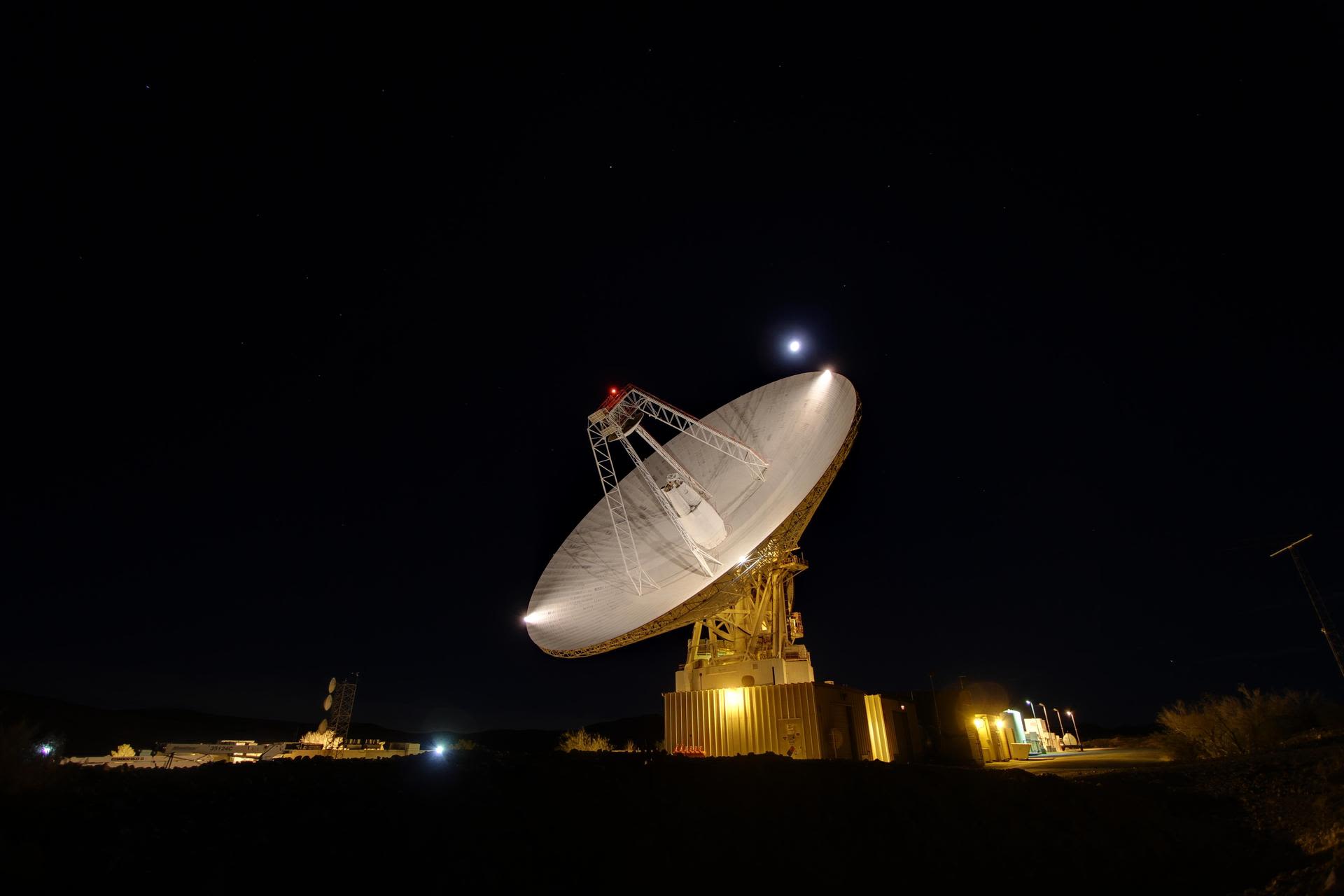
While the Government-led approach of ‘old space’ relied strongly on engineers and other scientists, the space envisaged by our speakers over the past four years involves a wide range of skills and strengths. Renée Rottner, Assistant Professor, Technology Management Program at University of California Santa Barbara, asked: ‘We might be able to build a rocket to Mars or Venus, but what do we do when we get there? What kind of societies will we build and, assuming we're successful, how will we solve the inevitable challenges of space-based activities unless we can draw on the whole range of human knowledge and experience?’
The current dependence on people with engineering degrees means that space is predominantly male, and predominantly techno-rational. But not only do we need social scientists, lawyers, and business strategists to create the structures around which a new space economy can thrive, we also need lateral thinkers, critical thinkers, and artists of all types to enrich and develop the leadership, communities, and individuals of the future.
'Without diversity it's like going into a room and having the lights half on. You don't see threats, you don't see solutions. With diversity, both demographic and disciplinary, you get a much fuller picture, which opens your options and opens it for innovation.'
This need for diversity is clarified further by asking the fundamental question of whom space is for.
Mona Nasser, Professor in Clinical Epidemiology and Oral Health Research at the University of Plymouth, believes that it is best described as for ‘humanity’:
Season 3, episode 1 (Access to space)
Season 3, episode 1 (Access to space)
'I think the best sense I could come up with is saying it's for humanity, and the reason I use the word humanity a lot is that I don't think everyone necessarily has to go to space or have access to space, but we have to find strategies to make it accessible and beneficial for everyone, rather than just increasing inequality based on the consequences of access to certain space resources. I think of access as literal access of who will physically go into space; it's also who will benefit from space or who is already benefiting and doesn't know.'
Sam Adlen, Chief Strategy Officer, Satellite Applications Catapult, listed a wide array of professional skills needed within the space sector and in adjacent sectors.
Season 2, Episode 2 (SMEs and SDGs)
Season 2, Episode 2 (SMEs and SDGs)
'The space sector is technically really very good but actually we need so many other skills: it's sociologists, economists, definitely business people, business acumen, finance expertise: it's those sorts of things that are really going to unlock the space sector. Alongside that there's how you work with other sectors; so there's the sectors that space touches already through the services it delivers, like connectivity, safer agriculture, transport, and then bringing these other sectors I've talked about, like the energy sector towards things like solar power in space – those are interesting. But more readily there are a bunch of adjacent sectors that can be brought towards space to create the sector that we really need tomorrow, and it's going to be a very different looking sector, very different makeup to what it is today.
So we could bring advanced manufacturing, Robotics, those sorts of skills towards the space sector now that that would really make a difference.'
Joan Johnson-Freese went further:
'Bringing in dancers, bringing in artists, bringing in individuals who have an entirely different background than STEM adds to it in ways we can't even imagine and some of it is simply putting out imagery that allows us to imagine more than we are able to otherwise, so I think it is absolutely important that even the multi-disciplinary curriculum that we have so far goes further, extends out further to the arts, to areas beyond engineering and business and policy and medicine and recognise that to go into space we take everything with us. We take everything, all our baggage goes with us and we need to support that.'
'Imagination is not just a wonderful daydreaming and invention tool and human capability: it's actually a strategic asset.'




Sustainability

Sustainability has been a major theme throughout all the Smart Space events, with insights arising from two distinct perspectives: space supporting sustainable development on Earth, and the sustainability challenges of operating in space.
Satellite technology can provide valuable tools, data and insights to enhance our understanding of earth and its ecosystems, and thus contribute to sustainable development – and not just in the area of the environment. Challenges from this perspective include ownership of the data and the development of an intermediate layer of organisations to generate insights.
Key sustainability challenges in space include improving fuel efficiency, with 40% of a rocket's payload currently being fuel. Concerns about debris were raised frequently, along with finding ways to renew, refuel, and repair in space – and how that should be managed, financed, and negotiated with other actors. This underscores the need for a robust regulatory framework to ensure the safe and coordinated use of space resources.
Shelli Brunswick from Space Foundation and Rafel Jorda from Open Cosmos talked about the possibilities of technology developed for space (freeze dried foods, for example) and of Earth observation from space.
Season 3, episode 3 (Space for good)
Season 3, episode 3 (Space for good)
'When we think about the Moon and Mars we also need to think about tech transfer and how that technology benefits us every day. And some key areas as we look at some of the first sustainable development goals. Zero hunger – we're looking at space application whether it's freeze-dried technology, Earth observation from satellites helping farmers in Africa increase their crop yield or vertical farming. We're using space technology to solve parts of that sustainable development goal and we can look at water and sustainable energy and so on.'
Season 1, episode 4 (Entrepreneurship opportunities)
Season 1, episode 4 (Entrepreneurship opportunities)
'Challenges like climate change, like optimisation of use of resources, of energy, and many of these big challenges that we are facing as humanity can only be addressed if we put all of that processing capability, analytics tools and AI leveraging all of the data sets from satellites to good use.'
Josephine Millward, Head of Research, Seraphim Capital, expanded on this potential.
'One of the biggest problems to go after in my opinion is how do we use all all these new data to combat climate change? We can use a satellite to detect greenhouse gas emissions, to figure out who's polluting and where the polluters are located. We can monitor and track deforestation and detect illegal logging. I think geospatial data is going to play a very important role in protecting our environment and this is just the beginning.'
Data, however, is something of a double-edged sword, with ownership and interpretation already contested on Earth. Dr Samira Barzin, University of Oxford, warned that data should be interpreted within its socioeconomic context.
'The people that build models are not necessarily those that can actually understand the models, and that can be extremely dangerous: if you don't know what you're modelling you might be modelling either just noise or you might actually be introducing a bias into your algorithm.
Additionally, if we do something in good faith, could that be misconstrued and cause harm? If we think of illegal fishing, of course we want to fight illegal fishing - but what are the considerations that we should be having if it's actually smallholder fishing and it's someone's income that that we are attacking? There there's a big risk there to just look at space-based and remote sense information without embedding them into the socioeconomic system from within which that data comes.'
The potentially powerful force for good that space represents only strengthens the case for improved governance and regulatory frameworks: expectations about data ownership and use, for example, should not be transferred uncritically from Earth to space.
Greater awareness of the importance of sustainability on Earth has meant that we have started considering it in the space environment considerably earlier that we did in comparable sectors such as ocean navigation and aerospace. This is both a necessity and an opportunity.
This is Harriet Brettle, Head of Business Analysis, Astroscale:
Season 1 episode 4 (Entrepreneurship opportunities)
Season 1 episode 4 (Entrepreneurship opportunities)
'So some of the things that are really exciting to see that are developing in the space industry is how we're moving to think more holistically about space sustainability and the environment in which we're operating; and so that really moves us away from thinking about a throwaway culture and space to thinking more sustainably about how we can make the best use of satellites in orbit and providing in-orbit servicing to create a foundational platform within space that can help to generate those services that we're relying on in everyday life.'
Chris Blackerby, Group COO and Director, Japan, Astroscale, was also positive about the end of a throwaway culture in space.
'This idea of servicing and reusability is a trend that we see. It's not going to stop: SpaceX has demonstrated it, Blue Origin’s demonstrating it, so many others are focused on this. We're focused on it. We see a huge business opportunity in servicing, and that means debris removal, it means refuelling, it means life extension. It's no more a throwaway culture of we launch and we get rid of. Now we launch, we move, we reuse, we service and that's just going to continue.'




Conclusion

While space is theoretically infinite, the commercial space area is currently confined to an orbit only a few hundred miles above the Earth’s surface. Operating in this finite space gives rise to issues of conjunction, communication, and debris that are not catered for in existing international treaties. We have already seen, on Earth, how easily technological advances can outstrip regulation, leaving governments to catch up as private companies shape markets for their own ends. The greater the amount of activity in space, the more urgent it is to develop agreements that will ensure physical safety (no collisions), facilitate access, and prevent a tragedy of the commons.
Multiple space technologies are already integral to everyday life, from satellite communications and GPS to internet connectivity. And the space industry as a whole is currently valued at $700 billion and projected to reach $1.8 trillion by 2035. This growth is expected to drive further innovations in aviation, such as flying taxis and advanced emergency response systems, by 2040. Space-derived data could be a vital tool for monitoring progress, informing policy decisions, and addressing global challenges.
From the economic and technological innovations to the ethical and regulatory challenges, the last four years of Smart Space discussions have painted a comprehensive picture of the future of space as an essential component of global progress. At the same time they have prompted new questions about how economies should be managed, jobs created, and education redesigned to make the most of this exciting new market.

Acknowledgements and further reading
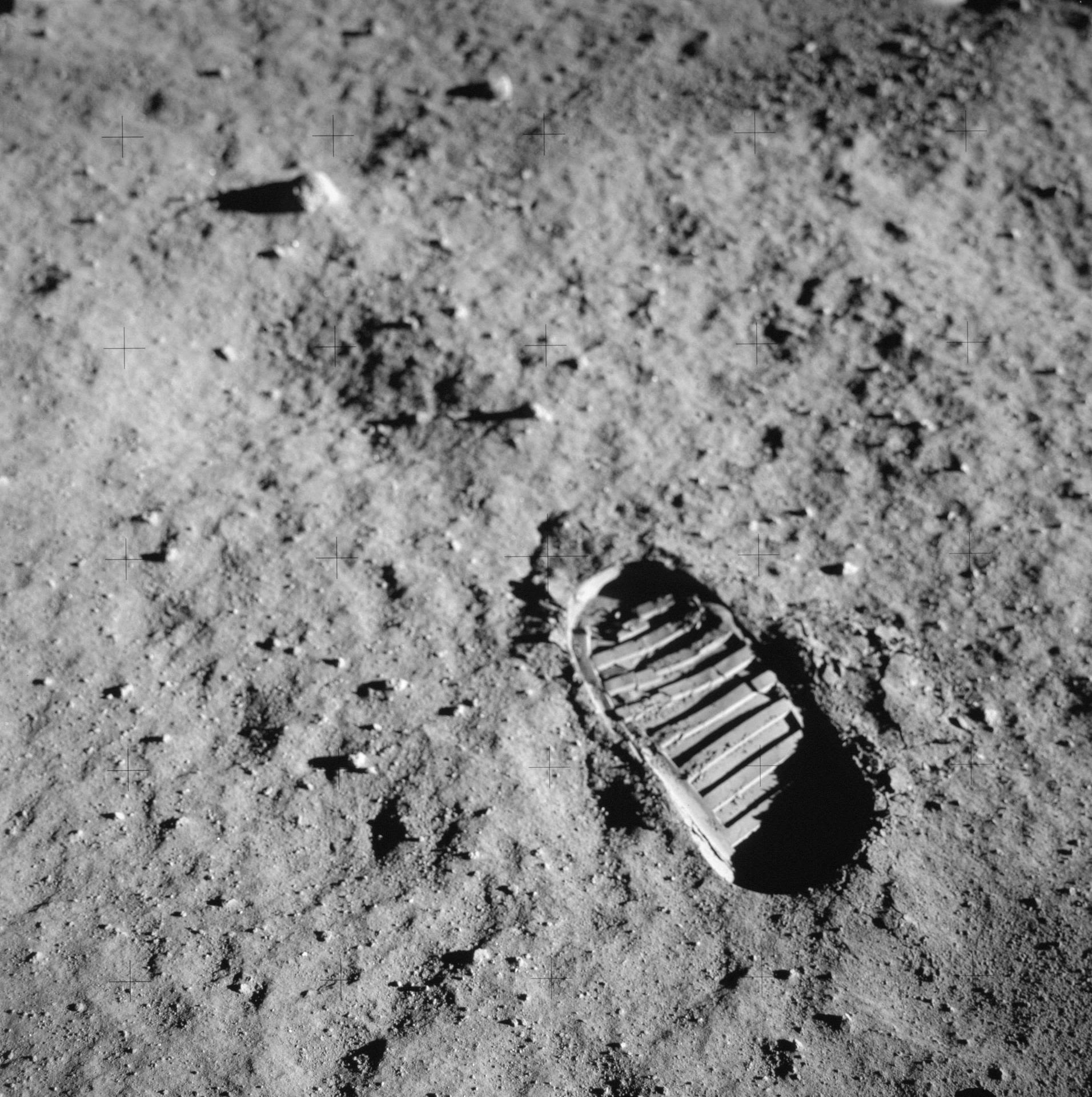
We are grateful to all the Oxford Smart Space speakers who contributed their insights and experiences, as well as the events team at Saïd Business School, without whom this series would not have happened.
Joseph Abakunda, Chief Strategy Officer, Rwanda Space Agency
Simon Adebola, MD, Engineer Lead, Anthem Inc. and Diploma in Strategy and Innovation candidate, Saïd Business School
Sam Adlen, CSO, Satellite Applications Catapult
Timiebi Aganaba, Assistant Professor, School for the Future of Innovation in Society, Arizona State University
Nick Appleyard, Head of Downstream Business Application, ESA,
Daniel Armanios, BT Professor and Chair of Major Programme Management at Sad Business School
Colin Baldwin, Head of Policy, UK Space
Dr Samina Barzin, academic researcher at the Oxford Martin School, University of Oxford
Chris Blackerby, Group COO and Director, Japan, Astroscale.
Harriet Brettle, Head of Business Analysis, Astroscale
Shelli Brunswick, Space Foundation
Andrew Bute, Head of Aerospace Defense and Space, Reliance Precision Ltd
Gabriele de Canio, transformation officer at the European Space Agency
Vanessa Clark, CEO, Atomos Space
Alan Cross, Business Applications Ambassador for European Space Agency/Northwest Space Cluster Development Manager
Arnab Dutt, OBE, SME Panel Member at the UK Cabinet Office
Robert Eberhart, Associate Director of Research on Entrepreneurship and Society, Stanford University
Laura Anne Edwards, NASA Datanaut
Dimiana Farag, the Oxford Space Initiative
Tiffany Franklin, Event Team Lead, Saïd Business School, University of Oxford
Guy-Philippe Goldstein, cyber-defence expert
Joanna Hart, Harwell Space Cluster Development Manager
Shirley Harrison, Company Engagement Manager for AMRC
Hélène Huby, Chairman, The Karman Project, and Co-Founder and Partner, Global Space Ventures
Yasrine Ibnyahya, Senior Director in Advanced Concepts and Technology, ViaSat
Candace Johnson, Partner & Chair of Advisory Board, Seraphim Capital.
Rafel Jorda, Founder and CEO, Open Cosmos
Lucas Kello, Associate Professor in International Relations, University of Oxford
Bosco Lai, Co-founder and CEO, Little Place Labs
Benn Lawson, Associate Professor of Operations Management at Saïd Business School, University of Oxford
Mike Lawton, Director and co-founder, Oxford Dynamics
Alexander MacDonald, Chief Economist, NASA,
Pippa Malgren, independent expert and scholar of geopolitics technology in space
Pat Mathewson, Astroscale
Catherine Mealing-Jones, Director of Growth, UKSA
Eamonn Molloy, Fellow and Tutor in Management, Pembroke College, University of Oxford
Mona Nasser, Professor in Clinical Epidemiology and Oral Health Research at the University of Plymouth
Anu Ojha, OBE, Director of the UK's National Space Academy programme
Luc Piguet, CEO, Clearspace SA
Renee Rottner, Assistant Professor, Technology Management Program at University of California Santa Barbara
Michele Scataglini, Associate Fellow at Saïd Business School, University of Oxford
Karl Schroder, science fiction author (Ventus, Permanence)
Manny Shar, Chief Strategy Officer, Orbit Fab
Dr Saud Al Shoali, Director of General Policies and Governance Head of the National Space Program at the Ministry of Transport, Communications and Information Technologies of the Sultanate of Oman
Sita Sonty, President, Sapphire Partners, and Executive Board Member, Women in Aerospace
Lynette Tan, CEO and Chair, Space Faculty
Sumara Thompson-King, General Counsel, NASA
Marc Ventresca, Associate Professor of Strategic Management, University of Oxford
Tim Vorley, Vice Chancellor and Dean at Oxford Brookes Business School
Frank White, Harvard Space for Humanity Foundation
Amber Woodhouse, Corporate Events Executive, Saïd Business School, University of Oxford
Maria Zubeldia, Director of the Entrepreneurship Centre at Saïd Business School, University of Oxford
Contact
The Oxford Smart Space series is part of a collaborative programme drawing on the energy and enthusiasm of a wide range of academic and business colleagues and the support of partner donors and sponsors. Please contact us if you are interested in making a gift or working with us.
Michele Scataglini
Associate Fellow
Saïd Business School, University of Oxford
michele.scataglini@sbs.ox.ac.uk
Saïd Business School is a vibrant and innovative school, embedded within the University of Oxford, offering accredited degrees and diplomas for undergraduates and postgraduates and a broad portfolio of on-campus and online courses for business executives. The School educates global business leaders, change makers and innovators across every industry and sector. Its ground-breaking research and exceptional teaching transforms individuals, who transform businesses, which transforms the world and creates impact from within.


